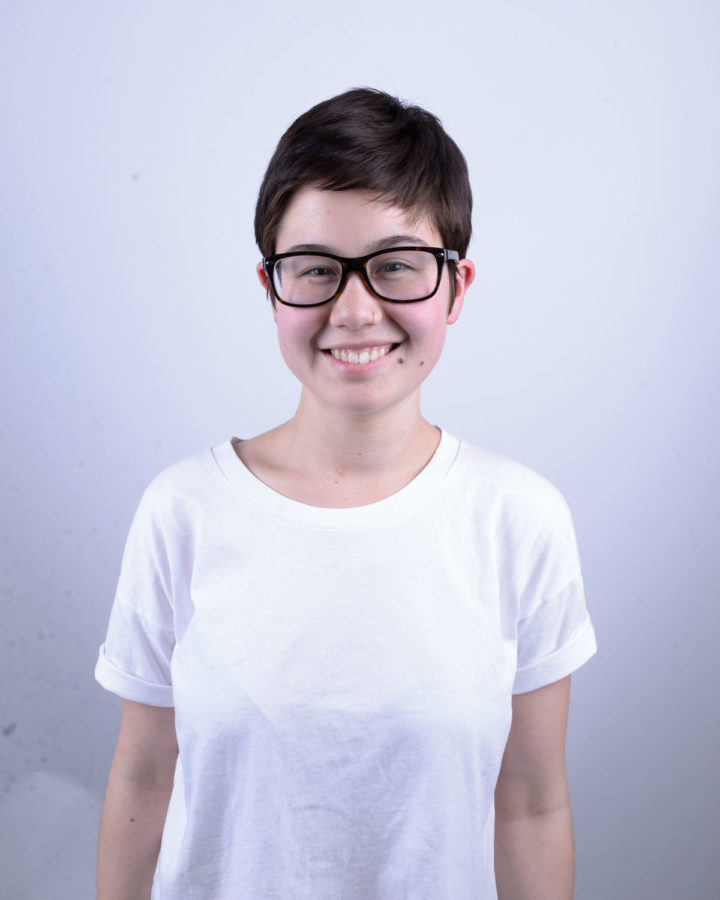Self-worth is more than beauty
Apr 22, 2015
There’s been a recent marketing movement focused on the idea that it’s empowering and needed that all women view themselves as beautiful. Dove’s Real Beauty Campaign is probably most well known for this marketing tactic. But other campaigns like #aerieREAL for American Eagle, which was heavily focused on the idea that “the real you is sexy,” and Pantene’s #shinestrong, which asserts that when you “shine on the outside. That’s a beautiful thing,” are capitalizing on this idea, too, and increasingly encouraging women to identify as beautiful and attractive.
While it’s important we recognize that companies using women’s empowerment as marketing campaigns have alternative motivations (like financial profits for promoting these ideas), it’s more important that we are critical of the ways these campaigns still put the focus of women’s worth on their body and beauty.
Dove’s Real Beauty Campaign recently released a new video called “Choose Beautiful.” In the video, there are two doors into a building: One has the word “beautiful” above it, the other “average.” The video exclusively features women and is described as representing the idea that “beauty is a choice — and the power of this choice is in your hands.”
This video attempts to dissect the significance and process of a woman choosing to identify as beautiful or average. It suggests that women who don’t identify as beautiful, but instead as average, don’t value themselves as much as those who do see themselves as beautiful.
But self-worth and confidence don’t need to be linked to beauty in this way, especially for women. And this idea pervades beyond just marketing campaigns. Even our campus’ Women’s Resources Center holds body image events to address “media representation of the female body in an attempt to broaden the societal definition of beauty and enhance self esteem.” This is another misguided extension of the idea that what women need is to be included in the definition of beauty, when in reality, beauty should be completely detached from measures of self-worth.
Get The Daily Illini in your inbox!
These campaigns and programs are seeking to equate feeling beautiful with feeling valuable, and that’s a harmful connection to promote, even if it is meant to be in an inclusive way. Using the word beautiful or beauty bears the burden of historically restricting women’s value to their bodies. Even if companies in some ways are trying to redefine the meaning of beauty to reflect ideas that women are worthy of respect and valuable, it’s still a harmful connection, especially when just targeted at women.
And the way these campaigns target women demonstrates that it’s not some all-encompassing, universal beauty idea that applies to men too. It’s specifically telling women that their beauty should be connected to the ways they feel valued and confident, and that’s simply not true.
Women should be able to consider themselves as looking average or unbeautiful, but still see themselves as valuable, confident, talented people worthy of respect. Promoting otherwise is actually restricting women to valuing themselves by beauty, rather than liberating them from beauty standards as these campaigns like to suggest they are doing.
Attempting to include all women as beautiful is a band-aid solution to the real issue of how women are encouraged to only feel valuable and confident if they’re beautiful or physically attractive. If companies really want to empower women, then they will encourage women to celebrate their talents, accomplishments, confidence and self-worth without any connection to beauty.
While I appreciate the inclusiveness of campaigns like Dove’s, they still reduce women to their bodies, and by restricting women to only being valuable if they are or feel beautiful, we’re misguidedly encouraging women to find self-worth in their appearance, even if it’s in a more inclusive way.
Audrey is a senior in LAS.






